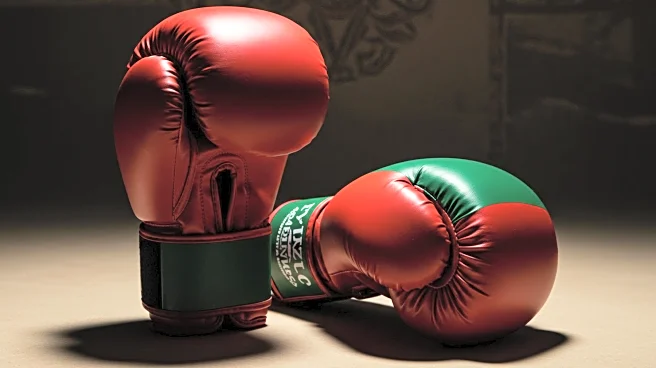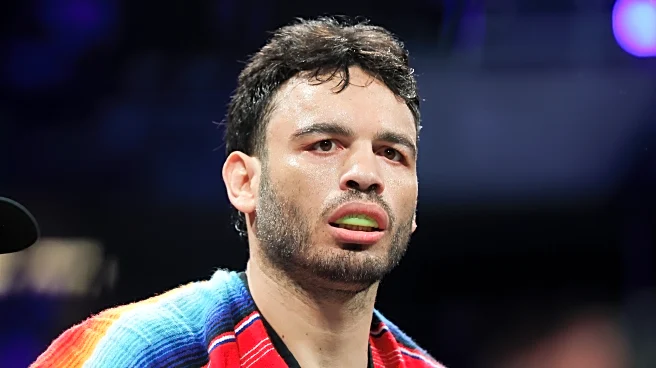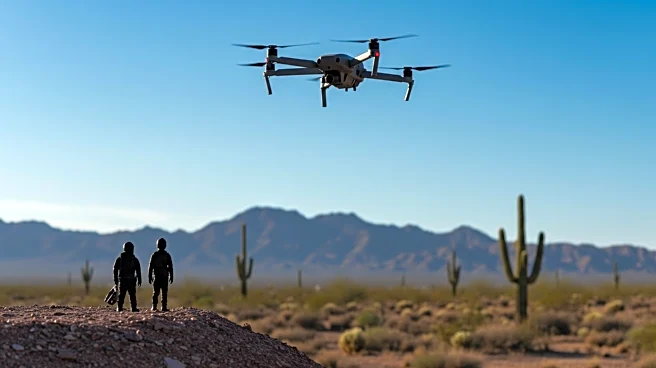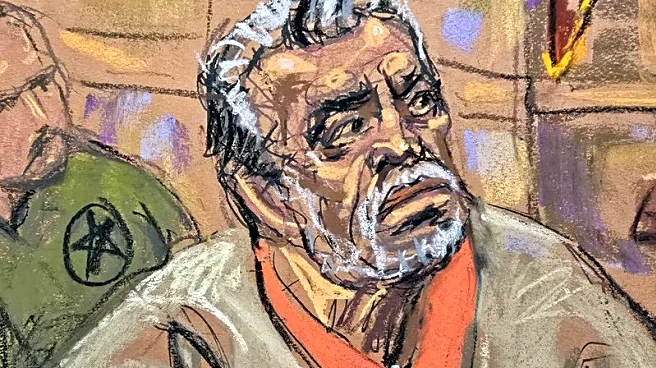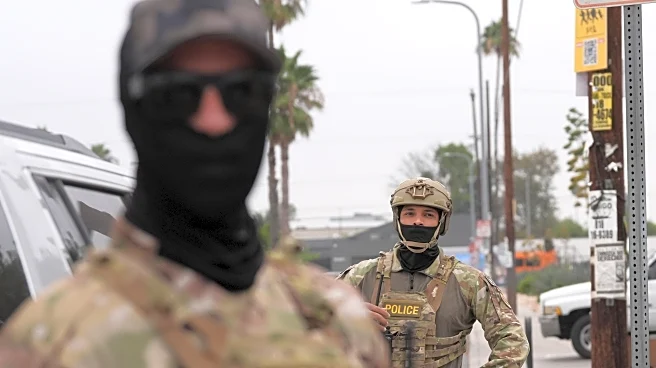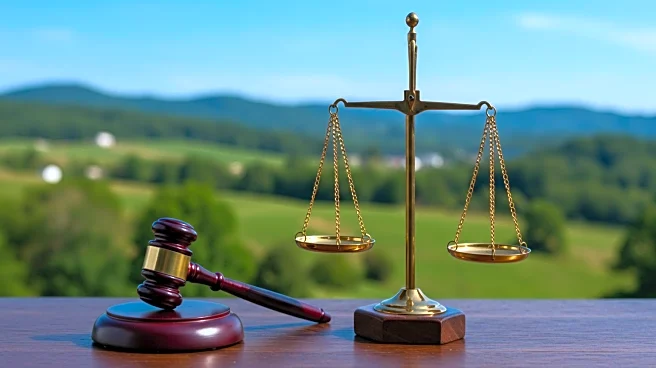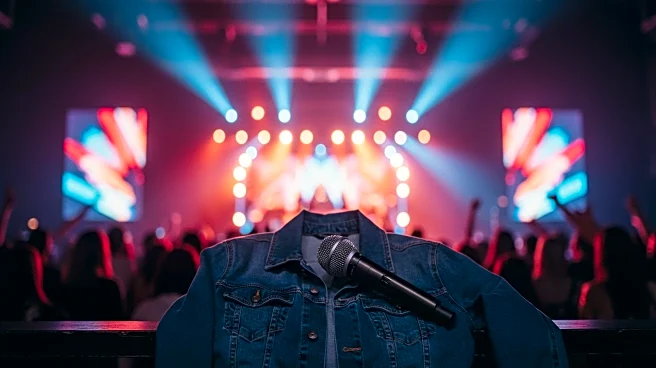What's Happening?
Julio César Chávez Jr., a prominent boxer, has been deported from the United States to Mexico due to alleged ties with the Sinaloa Cartel and involvement in organized crime. U.S. authorities arrested Chávez in July for overstaying his visa and making fraudulent statements on his green card application. He now faces charges in Mexico related to organized crime, arms trafficking, and explosives. Chávez, the son of Mexico's legendary boxer Julio César Chávez, has faced criticism for his alleged associations with cartel figures, including Ovidio Guzmán, son of Joaquín 'El Chapo' Guzmán. Despite his troubled career, Chávez won the World Boxing Council middleweight title in 2011. His deportation follows a series of legal troubles, including a drunk-driving conviction and gun charges in Los Angeles.
Why It's Important?
The deportation of Julio César Chávez Jr. highlights the ongoing issues of drug trafficking and organized crime that affect both the United States and Mexico. Chávez's alleged connections to the Sinaloa Cartel, one of Mexico's most notorious drug syndicates, underscore the challenges in combating cross-border crime. This development may impact U.S.-Mexico relations, particularly in terms of cooperation on law enforcement and immigration policies. The case also reflects the broader societal issues of substance abuse and legal troubles faced by public figures, which can influence public perception and policy discussions around crime and immigration.
What's Next?
Chávez is currently in Mexican custody, and legal proceedings are expected to follow regarding the charges he faces in Mexico. The case may prompt further investigations into his alleged cartel connections and could lead to additional arrests or legal actions against other individuals involved. U.S. authorities may continue to monitor and address similar cases involving individuals with alleged ties to organized crime. The situation may also influence future immigration enforcement priorities and policies under the current administration.
Beyond the Headlines
Chávez's deportation raises questions about the effectiveness of immigration enforcement and the ability of individuals with criminal backgrounds to travel between countries. It also highlights the ethical and legal challenges in balancing public safety with individual rights. The case may lead to discussions on the role of public figures in influencing societal attitudes towards crime and immigration, as well as the impact of their actions on their careers and personal lives.
